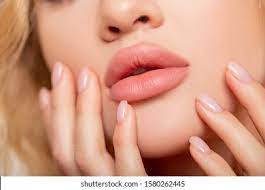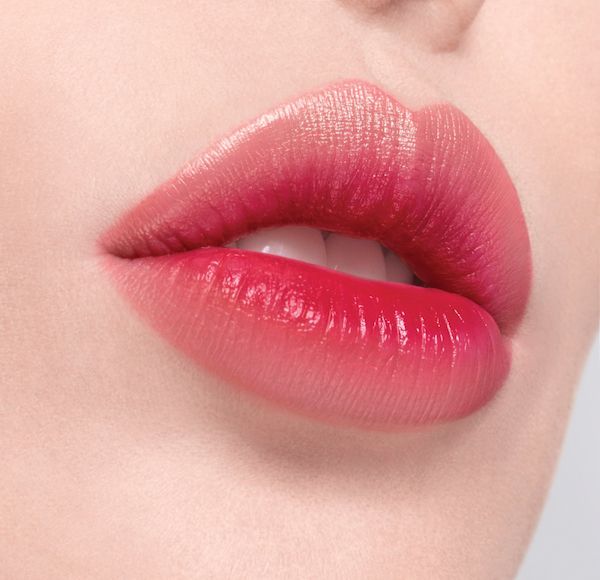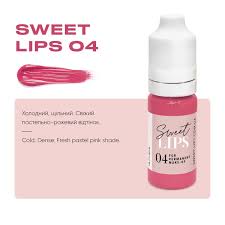Welcome to (International Stories). In this story, we will discuss 10 Tips To maintain the color of your lips, Chapped lips. I hope you will like this article.
10 Tips To maintain the color of your lips, Chapped lips
Lips are a part of the human body and are located on the mouth’s exterior. They play a crucial role in various functions, such as speech, eating, and expressing emotions. Here are some key points about lips:
- Structure: Lips are composed of a delicate and flexible muscular tissue covered by a thin layer of skin. The skin on the lips is thinner compared to the skin on other parts of the body.
- Sensitivity: The lips have a high concentration of nerve endings, which contribute to their sensitivity. This sensitivity allows us to perceive different sensations, such as touch, temperature, and pressure.
- Vermilion border: The vermilion border is the distinct edge that separates the red part of the lips (vermilion) from the surrounding skin. It is usually more defined and darker in color, giving the lips their characteristic appearance.
- Moisture and lubrication: The lips don’t contain oil glands like other parts of the skin, which makes them prone to dryness. To prevent this, the lips have a small number of sweat glands and a unique type of gland called labial glands, which produce a lubricating fluid to keep the lips moist.
- Functions: Lips are essential for various functions, including speech and articulation. They help us form different sounds by controlling the airflow and shaping it into specific patterns. Lips are also involved in eating and drinking, as they assist in biting, chewing, and sealing the mouth.
- Expression of emotions: Lips play a significant role in non-verbal communication and expressing emotions. Smiling, frowning, pouting, or kissing are all gestures that involve the movement and positioning of the lips.
- Cultural significance: Lips have cultural significance in different societies and are often associated with beauty and attractiveness. Throughout history, various cosmetic practices, such as using lipsticks or lip liners, have been employed to enhance the appearance of lips.
It’s important to note that lips’ appearance and characteristics can vary among individuals due to factors such as genetics, ethnicity, and personal habits.
The various reasons lips may appear to change color
There can be various reasons why lips may appear to change color in individuals with darker skin tones. Here are a few possible explanations:
- Natural Variation: Lips, like other parts of the body, can exhibit natural variations in color. Different shades of brown or black are common among individuals with darker skin tones, and these variations can be seen on the lips as well.
- Hyperpigmentation: Hyperpigmentation refers to the darkening of an area of the skin caused by an increase in melanin production. It can occur on the lips as well, resulting in areas that appear darker than the surrounding skin.
- Sun Exposure: Sun exposure can affect the color of the lips in individuals of all skin tones. When exposed to the sun, the lips may darken or become discolored due to increased melanin production as a protective response.
- Smoking: Smoking tobacco can cause discoloration of the lips, particularly in individuals with darker skin tones. The chemicals in tobacco can lead to a darkening effect on the lips, often appearing as a bluish or purplish color.
- Medications or Health Conditions: Certain medications or health conditions can cause changes in skin color, including the lips. For example, some medications may cause lip discoloration as a side effect. Additionally, certain medical conditions, such as vitiligo or melasma, can affect the pigmentation of the lips.
If you notice any significant or persistent changes in lip color, it’s always a good idea to consult a healthcare professional for an accurate diagnosis and appropriate advice.
10 Tips To maintain the color of your lips
To maintain the color of your lips, here are some tips you can follow:
- Stay hydrated: Drink an adequate amount of water throughout the day to keep your body and lips hydrated. Dehydration can cause dryness and discoloration of the lips.
- Protect from the sun: Lips are prone to sun damage, which can lead to pigmentation and darkening. Apply a lip balm or lipstick with SPF protection before going out in the sun to shield your lips from harmful UV rays.
- Exfoliate regularly: Gentle exfoliation helps remove dead skin cells and promotes new cell turnover, keeping your lips soft and vibrant. You can use a homemade scrub or a lip exfoliating product to gently massage your lips in circular motions and then rinse off.
- Moisturize daily: Apply a moisturizing lip balm or lip conditioner regularly to keep your lips hydrated and prevent dryness. Look for products that contain natural ingredients like shea butter, coconut oil, or beeswax to nourish and protect your lips.
- Avoid licking your lips: Licking your lips may provide temporary relief but can actually make them drier in the long run. Saliva evaporates quickly, leaving your lips even more dehydrated. Instead, use a moisturizing lip balm to soothe dryness.
- Quit smoking: Smoking not only affects your overall health but can also cause discoloration and darkening of the lips. Quitting smoking can help improve the appearance of your lips and prevent further damage.
- Be mindful of your diet: Consuming a balanced diet rich in vitamins and minerals is beneficial for maintaining lip health. Include foods high in antioxidants, such as fruits and vegetables, which can help combat free radicals and keep your lips looking healthy.
- Avoid excessive caffeine and alcohol: Both caffeine and alcohol can contribute to dehydration, leading to dry and discolored lips. Limit your intake of these substances to maintain lip color.
- Remove makeup before bed: Leaving lipstick or other lip products on overnight can dry out your lips and cause pigmentation. Make sure to remove all makeup from your lips before going to bed using a gentle makeup remover or a natural oil like coconut oil.
- Practice good oral hygiene: Keeping your mouth clean and healthy is essential for maintaining lip color. Brush your teeth twice a day, floss regularly, and consider using a soft toothbrush to gently brush your lips to remove any dead skin.
Remember, everyone’s lip color may vary naturally, so embrace your unique features and take care of your lips to keep them healthy and beautiful.
To negative aspects or problems related to lips
There aren’t necessarily “bad” reasons for having lips, as they serve important functions in the human body. Lips play a crucial role in speech, eating, drinking, and expressing emotions. However, if you’re referring to negative aspects or problems related to lips, here are a few examples:
- Dryness and chapping: Lips can become dry and chapped due to various factors such as cold weather, dehydration, excessive licking, or allergic reactions. It’s important to keep the lips moisturized to prevent discomfort and cracking.
- Infections: Lips, like any other part of the body, can be susceptible to infections such as cold sores (caused by the herpes simplex virus), angular cheilitis (inflammation at the corners of the mouth), or bacterial infections. These conditions can cause discomfort, swelling, and pain.
- Allergic reactions: Some individuals may have allergies to certain substances such as lip balms, lipsticks, or other cosmetic products. This can lead to irritation, swelling, or a rash around the lips.
- Sun damage: Lips are sensitive to the sun’s UV rays and can experience sunburn. Prolonged sun exposure without protection can lead to dryness, peeling, and an increased risk of developing lip cancer.
- Injuries: Lips are vulnerable to injuries, such as cuts, bruises, or burns. These can occur from accidents, falls, or contact sports. In some cases, injuries to the lips may require medical attention and proper care.
It’s important to note that while these issues can occur, they are typically temporary or treatable. If you have concerns about your lips or any persistent problems, it’s advisable to consult a healthcare professional or dermatologist for proper diagnosis and guidance.
10 Tips to keep your lips beautiful
To keep your lips beautiful, you can follow these tips:
- Hydration: Drink plenty of water throughout the day to keep your body and lips hydrated. Dry lips can become chapped and dull, so staying hydrated is essential.
- Moisturize: Apply a lip balm or moisturizer regularly to keep your lips soft and supple. Look for products that contain natural ingredients like beeswax, shea butter, or coconut oil.
- Exfoliation: Gently exfoliate your lips once or twice a week to remove dead skin cells and promote smoothness. You can use a soft toothbrush or a homemade scrub made of sugar and honey to lightly massage your lips.
- Sun protection: Apply a lip balm with SPF before going out in the sun. Lips are susceptible to sun damage, so protecting them from harmful UV rays can help maintain their beauty and prevent discoloration.
- Avoid licking your lips: Although it may provide temporary relief, licking your lips can actually make them drier. Saliva evaporates quickly, leaving your lips even more dehydrated. Instead, reach for a lip balm when your lips feel dry.
- Healthy diet: Eat a balanced diet rich in vitamins and minerals to promote overall skin health, including your lips. Include foods like fruits, vegetables, whole grains, and lean proteins to nourish your lips from the inside out.
- Don’t bite or pick at your lips: Avoid biting or picking at your lips, as this can cause irritation, dryness, and even lead to scarring. If you have a habit of biting your lips, try using a flavored lip balm to keep your mouth occupied.
- Makeup removal: Before going to bed, make sure to remove any lipstick or lip products. Leaving makeup on your lips overnight can lead to dryness and irritation.
- Avoid smoking: Smoking can darken the lips and cause premature aging. Quitting smoking not only benefits your overall health but also helps maintain the beauty of your lips.
- Protect against harsh weather: During cold or windy weather, cover your lips with a scarf or wear a lip balm with added emollients to provide extra protection against harsh conditions.
Remember, consistent care and protection are key to maintaining beautiful lips.
Some common lip disorders
There are several diseases and conditions that can affect the lips. Here are some common lip disorders:
- Cold sores (Herpes labialis): Caused by the herpes simplex virus (HSV), cold sores are painful, fluid-filled blisters that typically appear on or around the lips. They are highly contagious and can recur periodically.
- Angular cheilitis: Also known as perleche, angular cheilitis is characterized by inflammation and cracking at the corners of the mouth. It can be caused by factors such as fungal or bacterial infection, vitamin deficiencies, or excessive moisture.
- Chapped lips: Dry, cracked, or chapped lips can be caused by various factors such as exposure to cold or dry air, excessive licking of the lips, dehydration, or certain medications. It is important to keep the lips moisturized to prevent discomfort.
- Actinic cheilitis: This condition is commonly caused by prolonged sun exposure and primarily affects the lower lip. Actinic cheilitis can lead to dryness, scaling, and the development of precancerous or cancerous lesions.
- Mucocele: Mucoceles are small fluid-filled sacs that form when a salivary gland duct becomes blocked or damaged. They commonly appear as a painless, bluish bump on the inner surface of the lips. Mucoceles may rupture and heal on their own or require medical intervention.
- Allergic contact dermatitis: Lips can be sensitive to certain substances, such as lip balms, cosmetics, or food ingredients. Allergic contact dermatitis can cause redness, swelling, itching, and sometimes blistering of the lips.
- Oral cancer: While relatively rare, cancer can develop on the lips. It may appear as a persistent sore, ulcer, or growth that doesn’t heal. Risk factors for lip cancer include tobacco use, excessive sun exposure, and certain viral infections.
If you are experiencing any persistent or concerning symptoms on your lips, it is advisable to consult a healthcare professional for an accurate diagnosis and appropriate treatment.
Some common lip treatments
The treatment of lips can involve various approaches depending on the specific concern or desired outcome. Here are some common lip treatments:
- Moisturizing: Lips can become dry and chapped, especially during colder months or due to dehydration. Regularly applying a moisturizing lip balm or ointment helps keep the lips hydrated and prevents dryness.
- Exfoliation: Exfoliating the lips removes dead skin cells, leaving them smoother and softer. You can use a lip scrub or gently brush your lips with a soft toothbrush in circular motions. Afterward, apply a lip balm to lock in moisture.
- Sun protection: Lips are vulnerable to sun damage, which can lead to dryness, discoloration, and even skin cancer. Apply a lip balm with SPF (sun protection factor) to shield your lips from harmful UV rays.
- Lip plumping: If you desire fuller-looking lips, there are temporary lip plumping options available. These may include lip plumping glosses or balms containing ingredients like menthol or hyaluronic acid, which can create a temporary plumping effect. Some cosmetic procedures, such as lip fillers, can provide longer-lasting results, but they should be performed by a qualified professional.
- Lip care routine: Incorporate regular lip care into your skincare routine. This may involve gently cleansing your lips, applying a lip mask or treatment, and following up with a moisturizing lip balm.
- Lip makeup: Applying lipsticks, lip glosses, or lip stains can enhance the appearance of your lips. Opt for products that contain moisturizing ingredients to prevent dryness.
- Medical treatments: In certain cases, medical treatments may be necessary to address specific lip concerns. For example, if you have a persistent lip condition like angular cheilitis, a fungal or bacterial infection, or other skin conditions, it’s advisable to consult a healthcare professional or dermatologist for appropriate diagnosis and treatment.
Remember, if you have any concerns or specific conditions related to your lips, it’s always best to consult a healthcare professional for personalized advice and treatment.
Dry lips can be caused by several factors, both internal and external. Here are some possible reasons why your lips may be dry:
- Dehydration: Lack of proper hydration can lead to dryness not only in your body but also on your lips. Make sure you’re drinking enough water throughout the day.
- Weather conditions: Exposure to dry or cold weather can strip moisture from your lips, causing them to become dry and chapped. Windy conditions can also exacerbate the problem.
- Licking your lips: Although it may provide temporary relief, licking your lips actually worsens the dryness. Saliva evaporates quickly, leaving your lips even drier than before.
- Mouth breathing: Breathing through your mouth instead of your nose can cause your lips to dry out, as the airflow directly affects the moisture level on your lips.
- Allergies: Allergic reactions to certain foods, lip products, or environmental factors can cause dryness and irritation on your lips.
- Medications: Some medications, such as certain acne treatments or antihistamines, can have the side effect of drying out your lips.
- Vitamin deficiencies: A deficiency in vitamins like vitamin B or iron can contribute to dry and cracked lips.
To help alleviate dry lips, you can try the following remedies:
- Stay hydrated: Drink plenty of water throughout the day to keep your body and lips hydrated.
- Use lip balms: Apply a moisturizing lip balm or ointment that contains ingredients like beeswax, shea butter, or petroleum jelly. Reapply as needed, especially before going outside or to bed.
- Avoid licking your lips: Although it may be tempting, try to resist the urge to lick your lips as it can further dry them out.
- Protect your lips: Wear a scarf or use a lip balm with SPF when exposed to harsh weather conditions, such as cold or windy environments.
- Avoid irritants: If you suspect an allergic reaction or sensitivity, avoid using lip products that may be causing the dryness. Stick to natural or hypoallergenic lip balms.
If your lips continue to be excessively dry, become painful, or show signs of infection, it’s advisable to consult a healthcare professional for a proper evaluation and guidance.
Chapped lips
Chapped lips, also known as dry or cracked lips, are a common condition that occurs when the lips lose moisture and become dry and flaky. Several factors can contribute to chapped lips, including:
- Weather conditions: Exposure to cold, dry air, especially during winter, can deplete the moisture from your lips, leading to dryness and cracking.
- Dehydration: Not drinking enough water can cause overall dryness in the body, including the lips.
- Licking or biting the lips: Frequently licking your lips can actually make them drier because saliva evaporates quickly, leaving the lips even more dehydrated. Biting or picking at the lips can also worsen the condition.
- Sun exposure: Overexposure to the sun’s harmful UV rays can lead to sunburned lips, which can cause dryness, peeling, and cracking.
- Certain medications: Some medications, such as acne treatments containing retinoids, can cause dryness and chapping of the lips as a side effect.
To relieve chapped lips, you can try the following remedies:
- Use lip balm: Apply a moisturizing lip balm or lip ointment with ingredients like beeswax, petroleum jelly, shea butter, or coconut oil. Look for products without added fragrances or irritants. Apply the lip balm throughout the day, especially before going outdoors or before bed.
- Stay hydrated: Drink plenty of water to keep your body and lips hydrated from within.
- Avoid licking or biting your lips: Although it might be tempting, licking your lips will only make them drier. Be mindful of this habit and try to avoid it.
- Protect your lips from the elements: If you’re going outside in cold or windy weather, cover your lips with a scarf or use a lip balm with SPF to protect them from sun exposure.
- Exfoliate gently: Use a soft toothbrush or a clean, damp washcloth to gently exfoliate your lips and remove any dead skin. Be gentle to avoid further irritation.
- Use a humidifier: If you live in a dry climate or use indoor heating, a humidifier can add moisture to the air and prevent dryness.
If your chapped lips persist despite these measures, or if they become painful, swollen, or infected, it’s advisable to consult a healthcare professional for further evaluation and treatment.
Conclusion:
In conclusion, chapped lips are a common condition characterized by dry, cracked, and sometimes painful lips. They can occur due to various factors, including environmental conditions, dehydration, excessive lip licking, certain medications, and underlying health conditions.
To effectively treat and prevent chapped lips, it is important to maintain good lip care habits. Here are some key points to consider:
- Hydration: Drink an adequate amount of water throughout the day to keep your body hydrated, which helps prevent dryness and dehydration of the lips.
- Lip balm: Apply a moisturizing lip balm regularly, especially before going outside or in dry environments. Look for lip balms that contain ingredients like beeswax, shea butter, coconut oil, or petrolatum to lock in moisture.
- Avoid irritants: Limit exposure to irritants such as harsh weather conditions (extreme cold or wind) and products containing fragrances or certain chemicals that can further dry out your lips.
- Protect your lips: Use lip balm with SPF (sun protection factor) when exposed to the sun to prevent sunburn and damage from harmful UV rays.
- Avoid licking or biting your lips: While it may provide temporary relief, licking or biting your lips can worsen the condition by removing the natural oils and moisture from the skin.
- Humidify the air: Use a humidifier in your home or office, especially during dry seasons, to add moisture to the air and prevent excessive dryness of the lips.
If you consistently follow these practices and your chapped lips do not improve or become more severe, it is advisable to consult a healthcare professional or dermatologist for further evaluation and guidance.
Remember, prevention is key when it comes to chapped lips. By maintaining good lip care habits and protecting your lips from dryness and irritants, you can keep your lips healthy, smooth, and moisturized.
FAQ:
How do you heal chapped lips fast?
To heal chapped lips quickly, you can follow these tips:
- Keep your lips moisturized: Apply a good lip balm or ointment that contains natural moisturizing ingredients such as beeswax, shea butter, or coconut oil. Apply it several times a day, especially before going to bed.
- Stay hydrated: Drink plenty of water throughout the day to keep your body and lips hydrated from within. Hydration is essential for maintaining healthy skin, including your lips.
- Avoid licking your lips: Although it may provide temporary relief, licking your lips can actually worsen the condition by causing them to dry out further. Saliva contains enzymes that can irritate and dry out the delicate skin on your lips.
- Protect your lips: Shield your lips from harsh weather conditions such as cold, wind, and excessive sun exposure. Use a lip balm with SPF during the day to protect against harmful UV rays.
- Exfoliate gently: If your lips have dry, flaky skin, you can exfoliate them gently to remove the dead skin cells. Use a soft toothbrush or a lip scrub to lightly buff your lips in circular motions. Be gentle to avoid causing any damage or irritation.
- Avoid irritants: Some lip care products, toothpaste, and certain foods may contain ingredients that can irritate your lips. If you notice any allergic reactions or irritation, discontinue use and switch to milder alternatives.
- Humidify the air: Use a humidifier in your home or office, especially during dry seasons or in places with low humidity. This helps to add moisture to the air and prevent your lips from drying out.
- Avoid smoking and excessive alcohol consumption: Smoking and alcohol can dehydrate your body, including your lips. Minimizing or quitting these habits can help improve the health of your lips and overall skin.
If your chapped lips persist or become severely cracked, bleeding, or infected, it’s advisable to consult a healthcare professional for further evaluation and guidance.
What vitamin deficiency is chapped lips?
Chapped lips are typically not directly caused by a specific vitamin deficiency. Instead, chapped lips are commonly a result of environmental factors, such as cold weather, dry air, excessive sun exposure, or dehydration. However, certain vitamins play a role in maintaining healthy skin, including the skin on your lips.
Vitamin deficiencies that can contribute to dry or unhealthy skin in general include:
- Vitamin A: This vitamin helps maintain and repair skin tissues. A deficiency in vitamin A can lead to dry, flaky skin, including chapped lips.
- Vitamin B2 (riboflavin): A deficiency in vitamin B2 can cause skin dryness, including dry and cracked lips.
- Vitamin B3 (niacin): A lack of vitamin B3 can lead to a condition known as pellagra, which can cause dry, cracked lips along with other skin abnormalities.
- Vitamin B6: Insufficient levels of vitamin B6 may contribute to dry, chapped lips as it plays a role in skin health.
It’s important to note that while these deficiencies can affect the health of your skin, they are not the sole cause of chapped lips. Chapped lips can be alleviated by using lip balm, staying hydrated, protecting your lips from extreme weather conditions, and ensuring a well-balanced diet that includes essential nutrients. If you are concerned about your nutrient intake or have persistent issues with chapped lips, it’s recommended to consult with a healthcare professional for a proper diagnosis and guidance.
Do chapped lips always mean dehydration?
Chapped lips can be a symptom of dehydration, but they can also be caused by other factors. While dehydration is a common cause of chapped lips, there are other reasons why your lips may become dry, cracked, or chapped.
If you frequently experience chapped lips and are unsure of the cause, it’s a good idea to consult with a healthcare professional. They can help determine the underlying cause and provide appropriate recommendations for treatment or prevention.
Why wont my chapped lips heal?
There could be several reasons why your chapped lips are not healing.
To promote healing and alleviate chapped lips, you can try the following remedies:
- Use a gentle lip balm: Apply a moisturizing lip balm or ointment with natural ingredients like beeswax, shea butter, or coconut oil. Avoid products with potential irritants like fragrances, menthol, or camphor.
- Protect your lips: Cover your lips with a scarf or a lip balm that contains SPF when going outside in harsh weather conditions to shield them from further damage.
- Avoid licking or picking at your lips: As mentioned earlier, licking your lips can worsen the problem. Also, avoid peeling or picking at any loose or dry skin on your lips, as it can delay healing and lead to potential infections.
- Stay hydrated: Drink an adequate amount of water throughout the day to maintain proper hydration, which helps keep your lips moisturized.
- Use a humidifier: If the air in your environment is dry, using a humidifier can add moisture to the air and prevent further drying of your lips.
Remember, if your chapped lips persist or worsen despite trying these remedies, it’s best to consult with a healthcare professional for a proper evaluation and personalized advice.




